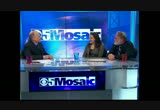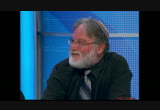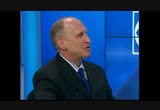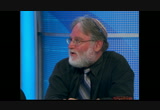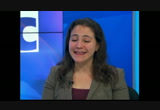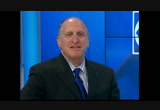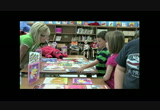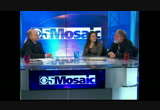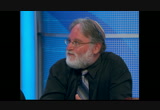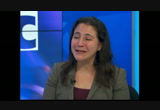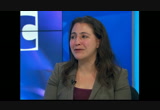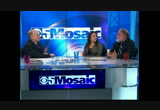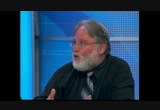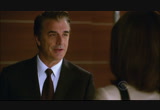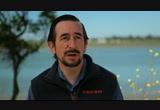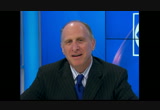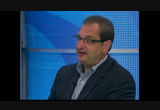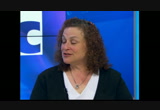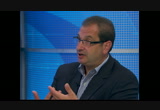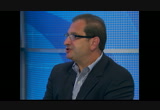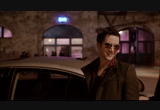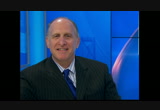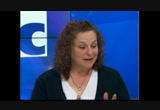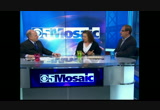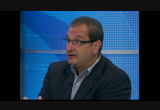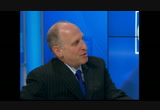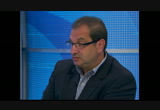tv Mosaic CBS December 30, 2012 5:00am-5:30am PST
5:00 am
to the bay area. >> wonderful. >> i grew up in dallas, texas. and i moved here from new york. i was ordained about a year ago. >> wonderful. and i'm wondering, from both of the places that you come from and certainly you went through the school in the meantime, what actually attracted you to come to the san francisco bay area and serve our community? >> well, the bay area is just a wonderful place to live and the jewish community here is a great jewish community and i was attracted to come because of the diversity, the open bs that bun finds in san francisco, and just the -- having been here only in the past as a tourist, loving the time i spent in the bay area, it's good to come here. >> so i went to stanford as an
5:01 am
undergrad and decided to become a rabbi based on the jewish community in the bay area and how vibrant and engaging it was for young adults so when i left to move to israel i always wanted to come back. and this is just an amazing opportunity to reconnect with friends and mentors and i have a lot of family that lives in east basothat was also a real draw. >> so there's a lot of conversation in the community about how religion is relevant to the contemporary way of life. and certainly when we look at the san francisco bay area there's a lot of conversation about how does one's faith, how does one's spisht chalty actually integrate with all the different ways in which we understand life. social, action issues, it seems that at least in the state of california there's always at least one valid measure having to do with health care or social
5:02 am
status, how individuals commit themselves to one another in the concept of marriage or family life that has a thread that gets linked to religion, to one's spiritty, how one might figure out where is god in all of this. and i'm wobderring when you look at the bay area jewish community and certainly now you're here a year and that you were attracted to sort of the diversity, what do you see in terms of the vie bran si of jewish life in that context? >> well, i think that it's impossible to separate our concerns for the well being of -- of society and the
5:03 am
tolerance and acceptance of diversity in -- in the community with our spiritual and our religious values. and the jewish christian has so much to teach about social equality and social justice, and it's really a big part of our job as rabbis to bring the -- the teaching of the jewish tradition and tara to these contemporary issues. >> yeah, my experience this first year, spending a lot of time with people in their 20s and 30s in san francisco is -- that life is lonely, that it's really busy, that it's very plugged in to all sorts of different kinds of devices, and
5:04 am
that in some ways, there's a natural flow towards kind of political or spiritual apathy and so i think jew deism offers a real answer to that. it gives you community so you don't feel so alienated. it gives you a sense of purpose so you have a frame by which to engage the broader world and i think it gives you time to disconnect, and kind of talk to yourself and to other people and not just to a screen. so not that that's not true throughout the country but the bay area has an intensity to it and -- and a transience, a mobility to it that i think makes those issues all the more relevant to people. >> we're going to take a quick break and come back in just one moment. please join us back here on mosaic.
5:05 am
have a love for skating. it all started when i was little and my dad took me to our local rink.. that love of skating took me to the olympics. i also have a love for reading. i remember my mom reading to me at night. those stories helped me reach for the stars as i drifted off to sleep. that's why i've joined with reading is fundamental, america's largest children's literacy group. together we inspire children to become life-long readers, so they can go for the gold. go to rif dot org, and inspire a child to read today.
5:06 am
welcome back to mosaic. we're in the middle of a wonderful conversation with new clergy that have joined us here in the bay area and we have with us rabbi from san francisco and also another rabbi danny gotlet. we were talking earlier about how the different way it is bay area is a ewe feek place for connection and i wonder if we could have some conversation about what you see and what you're doing in particular in your congregational settings about what it means about community and what it means to bring people together. >> well, we in the daily city part of san francisco face some
5:07 am
unique challenges demographicly. it's no longer the center of the jewish community it once was and the congregations that are south of park are smaller numbers than they were maybe ten years ago or 15 years ago so we've begun to collaborate on areas of adult education programming, youth programming to bring the full resources of four neighboring synagogues together. rabbis to teach courses, some services and programs combined in an effort to create a larger pool of participants and reach out even further into the community. >> and for those folks who are listening that might actually live in that neighborhood, let's let them know the congregations
5:08 am
that are involved in that cluster. >> sure. it's the four congregations that are working now in collaboration are luna, or shalom and ourselves beth israel jew dee ya. >> and can they go on to the internet or go to call one of you and find out more about the program? >> you can get information about our program from any of the four synagogues' websites. >> great. >> so we about three years ago did a listening campaign, so we had small group conversations with about 600 con gre gants and asked them, what is it that keeps you up at night? what is it that's really concerning you? and the two main things we heard were alienation, we're feeling lonely, disconnected, and the second thing we heard was cost of living, and that's not surprising given the cost of living in san francisco.
5:09 am
so we've been focusing on community building. we started emmanuel in the nad, which is that every emmanuel zip cold, so if you live like in 94118, you're part of the 94118 emmanuel community. you have a liaison to your zip code and all of our community building so we have a community break the fast, a community caring program that will deliver meals to you if you're sick, that will check on you if you need people and if you're home bound and you want somebody to come visit, anything that deals with direct support we do that now completely by zip code. so that's been a really amazing experiment over the last year and a half in reaching people in smaller, local groups given that we have over 2000 foomlys that's a lot of people to coordinate but it's been really successful. so that's the first piece. >> go ahead. >> the second piece has been
5:10 am
using the tools of community organizing to think about how we can advocate for young families and particular to be able to stay in san francisco in the long-term, given the increasing costs of both housing and education. so we've spesht the last three years building up an advocacy campaign to support our local public schools. >> it's so interesting that between both of your places regardless of size there's a common theme of what seems like a kind of yaerning to connect and to feel that you matter and that who you are is -- is an important part of the community with whether you're in a smaller place or you're in a larger place. >> i think that the -- you know, there's a tremendous challenge that the jewish community cases
5:11 am
of aging and the declining numbers of those who affiliate with all the different kinds of organizations in the jewish community whether that's synagogues or service organizations or federation organizations and how we're going to reengage this generation to be a part of these organizations and sustain these organizations that have been the infrastructure that has built the strong jewish community that we know. and having people feel that they matter, having people feel that they are part of a communal family is really the key to engaging them and drawing them back into the orbit of these organizations that provide the structure of jewish life. and so whether it's, you know,
5:12 am
family dinners at the synagogue before services or other kinds of retreat programs, programs that bring people together, in addition to the activities that takes place once they are together, these are ways that we're trying to reach out and engage this generation. >> thank you so much. we're going to have a quick break and come back as we continue our conversation with the new clergy here in the san francisco bay area. please join us back here on mosaic in just a moment.
5:14 am
5:15 am
joined by rabbi garnet brick ner which is a rabbi and the conversation shares israel and san francisco. welcome. >> thank you. >> so let's just jump in again and just ask you where have you come from and what attracted you to come to the san francisco bay area? noo well, i'm not new to the bay area. i lived in the bay area my entire adult life but i'm new to the clergy. i was just ordained in june and i am very lucky to have a job in the heart of san francisco. just started in july. >> wonderful. >> and i am the new one in the area and i moved to the san francisco area just six weeks ago from columbus, ohio, where my family has been living for a long time. i've been in for 25 years and what attracted me to this area is -- other than the obvious,
5:16 am
really is the jewish community here and its creativity and its imagination about what a future of jewish life can be. i was really moetd vated and inspired by the people i met here, and i also really like the -- the colleagues, the people that are in the east way. they're bright and imaginative and willing to adventure and explore about the future. >> and cantorburg esz, when you say that you lived here and you're new to the area, what attracted you to become a cantor and to -- >> oh, gosh. how much time do you have? >> i know. it's a big question. >> i was a professional musician my entire adult life. and i started performing the dutys of a cantor as a soloist about 14 or 15 years ago and became hooked on it and realized
5:17 am
that there was more to it than just singing the good service and i decided that if i wanted to continue this work that i needed to understand litter ji and i needed to understand what i was doing aside from singing so that's what motivated me to go to cantor school. >> so when each of you look around newly with different eyes and new to the area at how to continue to build and cultivate the brei vance si of jewish landscape here in the bay area, what do you hope for? >> i liked what they were saying about listening to the people. this is a time in our -- in our lives that we really have to build a community from a grass roots kind of way. it is that community building type formula. long gone are the days of when you and i were children where the rabbi stood up on a high pulpit and told people what to
5:18 am
believe and how to -- how to believe. we live in a much more eclectic and a kind of time. so it requires active liste compassion and understanding of how people live and where they're living. and use the resources available, which there are many here in the san francisco bay area to reach out and attend to those people where they are, and realize that as we do, they will then come in as well. so i think it starts as a glass roots kind of project. and of course using the frame work of jewish community life which is historic. but if i can just add one thing and i don't want to take too much time but everybody's talking about the concerns for the low affiliation rate and how do we bring people back as if it's something novel. in fact, affiliation and low
5:19 am
affiliation is rather historic and one lady even say biblical and the idea that affiliation is the be all and end all of the future of jewish life, i think is putting the cart before the horse. we need to find out what people believe in and how to then structure that so we can do that in a community setting. obviously being jewish is something that has to be done collectively. but that's something we have to really look at. >> let's take a quick break in just a moment and continue this wonderful conversation. please join us in just a moment back here on mosaic.
5:22 am
wonderful conversation with new clergy who have come to the san francisco bay area. we were talking about the need to understand what motivates people, how they yearn for community and what attracts them to community and we're talking about how that might actually may or may not associate with affiliation with a synagogue. >> i'm new to the clergy but i have a sort of newness from the academic side of it having just gotten out of school and we discussed all these issues, but what i'm seeing in the community right now is that there is this hunger for connectivety. the rabbis in the first segment talked a lot about how to help people feel connected. and being a cantor obviously i'm always interested in how the music can bridge some of that loneliness and reach out in a
5:23 am
community. in many congregations, my own included, there are different services for different community groups. so there's a family service, there's a young person service. there's more musical service with a band, and it tells me that music has a sort of a hot line for people. they can't talk about god, use the word god, sometimes god talk is difficult but they can sing prayers and they can feel a connection that is different when you sing it as opposed to just reading the words or saying it out loud. and so i think a lot of synagogues are trying to cater to musical tastes of their congregations. there's a little bit of a danger in that in that we have a very rich tradition that unfortunately is falling by the wayside. and i feel it's my mission to be a bridge, to bring a contemporary service that speaks
5:24 am
to people in the here and now, but not give up on our rich musical traditions which i think would be a great loss. >> some of the things that we're doing in my congregation is also putting intergenerational kind of activities. i don't mean programming, i mean intergenerational worship. i'm trying to get away from the compartmentalizing of the different kinds of services for the different constituencies. we're not that big in my congregation and i want to create a worship experience for example or an educational experience that is in fact going to be intergenerational so that the young are teaching -- or learning by modelling from the old. and the old are inte grating and getting to know the children in our schools so they're not religious school and everyone else. it's got to be we are one community and it's going to take the village to make it happen. >> yeah, and i think adding to
5:25 am
that, how do you make a linear experience for people? how do they step over the threshold of worship and they're changed by it so when they come back across they bring something from a different experience. >> and i don't think worship is the end all of all that experience. there's the social experience, there's the interaction experience, you name it, music. it could be ritual, it could be study. there are many ways into the synagogue that make those important moments stick. and if we just focus on ritual, i think we miss many, many more opportunities that are more meaningful perhaps for the majority of the people. >> this is such a large conversation, but listening to the thing that comes to my mind is that we're a community that spent so much time commuting. we have people on bart. we have people in our ferry system ft we have people in the cars individually or in the car
5:26 am
pooling, picking people up at a car pool stop. >> and the kids getting shuttled from practice and they hope they're going to come to he brew school a couple of time as week but they're so overscheduled. >> so what comes to mind to me is how do we bring worship into a daily experience like people i'm sure are on their ipods listening to music on the ferry as an example and i think for a lot of people there are moments of spiritual capacity -- >> absolutely. ? >> in daily life that as you say might happen outside the synagogue. >> right. we live in a day and age where electronically we have all the apps you want and people have their ipads and iphones and whatever else and the movement is in fact putting those things -- making them available and we need to publicize that. there's also all kinds of resources that you can use. >> believe it or not it just is a time to say we've got to put a comma into the conversation. we're at the end of our time. thank you so much for being with
5:27 am
5:29 am
skroo welcome to bay subd and happy new year, everyone. we've got another award winning show. we'll tell you what's in the tech world. we'll talk about a prominent san francisco neighborhood and introduce you to a nonprofit making a big difference in the community. we'd love to hear from you if you'd like to connect with us. go to cbs sf.com and scroll down to bay sunday. we'll kick it off from a return visit from a man that spent the bulk of his career blogging on all things high tech. his love for education and the tech world with the tablet project and how t
225 Views
IN COLLECTIONS
KPIX (CBS) Television Archive
Television Archive  Television Archive News Search Service
Television Archive News Search Service 
Uploaded by TV Archive on

 Live Music Archive
Live Music Archive Librivox Free Audio
Librivox Free Audio Metropolitan Museum
Metropolitan Museum Cleveland Museum of Art
Cleveland Museum of Art Internet Arcade
Internet Arcade Console Living Room
Console Living Room Books to Borrow
Books to Borrow Open Library
Open Library TV News
TV News Understanding 9/11
Understanding 9/11